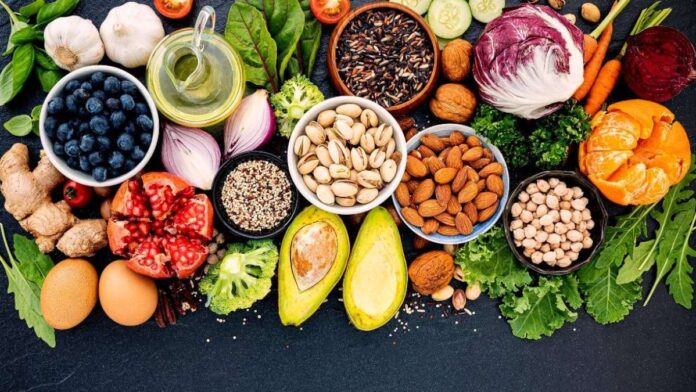Fats are an important constituent in the human diet as they are a concentrated source of energy and are required for specific purposes in the body. Nonetheless, not all fats are the same; they can be subjected to good fats and bad fats depending on the impact. To avoid the negative impacts of fats, it is crucial to comprehend the several forms of fat and how they influence our well-being.
Let us delve into the following subsections — characteristics, sources and effects of good and bad fats on health.
Good Fats
Monounsaturated Fats
Characteristics
These fats are good for the health of the heart since they help to reduce the bad cholesterol levels (LDL) while raising the good cholesterol levels (HDL). They are mostly in liquid form at ambient temperatures and become solid when cooled.
Health Benefits
Heart Health: Moderate intake can help prevent the build-up of cholesterol that causes heart disease.
Weight Management: These fats can help a person feel full and thus can assist them in managing their weight.
Inflammation Reduction: They may also assist with decreasing inflammation throughout the body which has an impact on health.
Sources
Olive Oil: It is mostly included in the Mediterranean diet and is rich in antioxidants and anti-inflammatory substances.
Avocados: Avocados are rich in fibre, vitamins and minerals. They are also packed with the least amount of fat.
Nuts: Nuts including almonds, cashews and hazelnuts fungi offer healthy fats with the benefits of protein and fibre.
Peanut Butter: This mainly provides monounsaturated fats, yet calorie-saturated, therefore, its usage should be moderate.
Polyunsaturated Fats
Characteristics
Polyunsaturated fats consist of essential fatty acids for the body which include omega 3 and omega 6 fatty acids. It is important to obtain these fats from the diet since the body can not synthesize these fats on its own.
Health Benefits
Omega-3 Fatty Acids: They have many benefits attributed to their anti-inflammatory properties and are good for the brain, lower the chances of heart disease, and can help with mood disorders.
Omega-6 Fatty Acids: Though these fats are crucial for human health, it is important that at times of consumption, the right proportion needs to be observed so as not to cause inflammation.
Sources
Fatty Fish: Some fishes that contain high amounts of omega-3 include salmon, mackerel, sardines and trout.
Walnuts: Alternative plant source of omega-3 fatty acids which also provides antioxidants.
Flaxseeds & Chia Seeds: These seeds are full of fibre and omega-3, and it is very convenient to incorporate them into smoothies or oatmeal.
Sunflower Oil & Safflower Oil: Foods that contain polyunsaturated fat include common cooking oils.
Bad Fats
Trans Fats
Characteristics
Trans fats are made through a process known as hydrogenation in which liquid oils are turned into solids. Such fat is generally believed to have negative impacts on the body and general health.
Health Risks
Increased LDL Cholesterol: These are responsible for increasing levels of LDL cholesterol and a decrease in levels of HDL cholesterol.
Heart Disease Risk: Adverse cardiovascular impacts from consumption comprise substantially elevated risks of heart disease and stroke.
Inflammation and Insulin Resistance: They might cause chronic inflammation and type 2 diabetes.
Sources to Avoid
Processed Foods: Cookies, cakes, doughnuts, microwave popcorn and most snack foods contain trans fats.
Margarine & Shortening: Certain varieties remain laden with trans fats; therefore, it is advisable to check the labels.
Saturated Fats
Characteristics
Saturated fats are distinguished by the fact that they are in the form of solids at normal room temperatures. They have been discussed over the years with regard to their effects on health.
Health Risks
Cholesterol Levels: High consumption has been related to increased LDL cholesterol levels in some people.
Heart Disease Association: Despite some recent research indicating that it might not be as potent as first believed, it is still advisable to take it in moderation.
Sources
Animal Products: Saturated fat is found in foods such as red meat like beef and lamb, poultry skin, butter, cheese and full-fat dairy products.
Certain Oils: Butter is rich in saturated fats; use it sparingly or in moderation together with coconut oil and palm oil.
Healthy fats need to be consumed while omitting the unhealthy fats to achieve good health. Focus on —
Including monounsaturated and polyunsaturated fats which include foods like nuts, seeds, avocado, fish and healthy oils.
Reducing saturated fat you eat from most kinds of foods and fatty meat.
Reducing consumption of trans fats because of their serious effects on one’s health.


